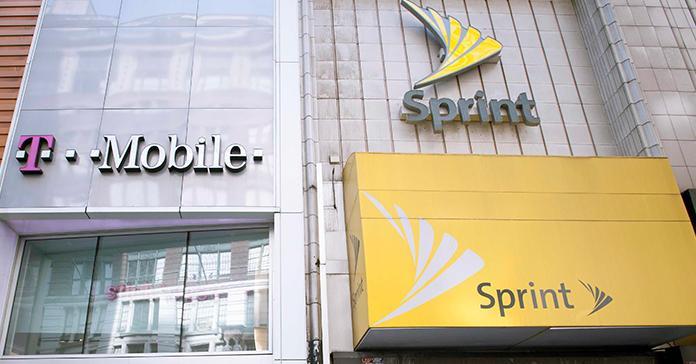Washington, D.C. - In states across the country, lawmakers, Attorneys General, regulators, and community leaders are expressing concern about the effects of the proposed T-Mobile/Sprint merger. As a recent Bloomberg article, titled “T-Mobile's Sprint Deal Draws State Concerns Over Consumer Harm,” highlights:
“State antitrust enforcers are expressing deep concerns that T-Mobile US Inc.’s proposed takeover of Sprint Corp. could raise prices for consumers, signaling they might seek to thwart the deal. Some state attorneys general who are investigating the $26 billion transaction took the unusual step this week of publicly voicing worries that the combination could harm competition, offering insight for the first time into how they view the tie-up … Of the state attorneys general that have been disclosed in FCC filings as investigating the merger, most are Democrats, though there are a few Republicans.”
Recent Congressional hearings demonstrated that concerns are growing among many lawmakers on Capitol Hill that the merger fails the public interest test. Below, are reminders that a growing number of voices in key states are exploring the merger and expressing similar concerns as well:
- Attorneys General in 15 states and Washington, D.C. have requested access to FCC numbering and porting data: Both Republican and Democratic state Attorneys General are represented in the list of states that have requested access to data: Alabama, California, Colorado, Connecticut, Florida, Hawaii, Iowa, Maryland, Massachusetts, Mississippi, Nevada, New York, Tennessee, Virginia, and Washington, as well as Washington, D.C.
- California, where the California Public Utilities Commission (CPUC) is evaluating the merger, holding public participation hearings in Fresno, Los Angeles, and San Diego, and the Public Advocates Office has recommended a denial of the merger. This week, an administrative law judge issued a ruling compelling T-Mobile/Sprint to respond to the Public Advocates Office’s substantive data requests and delaying the briefing schedule by one month accordingly. Meanwhile, at the CPUC hearings, CWA members and allies explained that the merger would mean lost jobs and reduced wages for California workers, while increasing prices for California consumers, especially low-income consumers. As a Los Angeles Times op-ed by Jessica Gonzalez of Free Press summarized, the merger would be harmful to California working families and regulators “should reject this merger outright.”
- Connecticut, where Attorney General William Tong told Bloomberg that the T-Mobile deal risks reducing choice for consumers, noting that states should “preserve as much choice as possible” and that states “have an obligation” to investigate the merger "because of the obvious potential risks to residents of our states.”
- Maryland, where state Attorney General Brian Frosh told Bloomberg that merging T-Mobile and Sprint would, as Bloomberg paraphrased, “further concentrate an already consolidated industry by leaving just three national carriers.” As Attorney General Frosh stated, “That’s dangerous for competition. That’s dangerous for consumers.”
- Minnesota, where 16 state organizations released a February 2019 letter stating that the T-Mobile/Sprint merger will harm Minnesota consumers and workers and urging regulators and elected officials to “block the merger as currently structured.”
- New York, where although the New York Public Service Commission approved the merger in February, CWA’s job loss concerns were taken into account by the PSC's requirement that the company's direct employment level be preserved at the same level for at least three years after the merger - a recognition that the impact of the merger on jobs is directly relevant to the public interest standard.
- Pennsylvania, where 33 state lawmakers and 12 civic and community organizations released a joint letter to federal regulators, expressing concerns that the proposed merger “will reduce consumer choice, competition, jobs, workers’ wages, and raise prices for consumers…This is not in the public interest.”
- Tennessee, where 24 state legislators sent a letter to the Federal Communications Commission and the Department of Justice expressing their concerns about the merger and stating that they, “cannot support a merger that would result in higher prices and fewer choices for wireless consumers, job loss for wireless workers, and increased risk to our nation’s security.”
Press Contact:
Beth Allen
[email protected]
202-434-1168
Amy Fetherolf
[email protected]
202-434-1168

